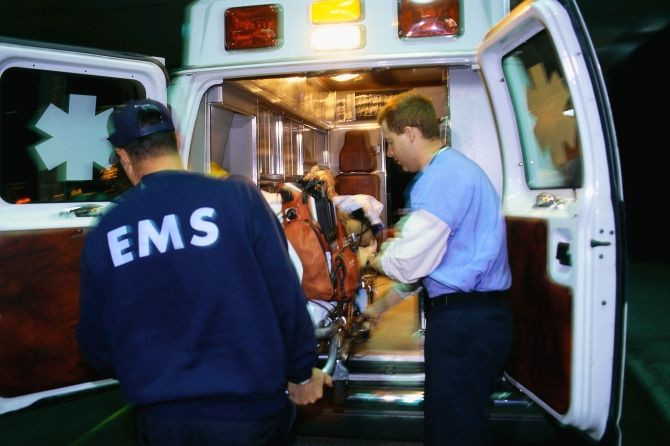One In Ten Ambulance Call-Outs Are Alcohol Related

Statistics show, on average nearly 30 people die a day nationwide in motor vehicle crashes that involves a driver under the influence of alcohol. In addition, new studies reveal one in 10 ambulance call-outs are alcohol related.
The study which was conducted by researchers from Newcastle University alongside North East Ambulance service (NEAS) and the North East Alcohol Office (BALANCE), observed digitally recorded incident logs from the ambulance service between April 2009 and March 2010.
The study revealed there are an estimated 31,000 emergency calls per year in alcohol related accidents, which equates to about £9 million, or roughly $13.97 million, in costs for local ambulance services.
According to Eileen Kaner, study author and professor of public health at Newcastle University, the study not only involves excessive drinking in young adults, but also in middle aged people. One of the key contributing factors includes what Kaner calls "pre-loading."
“Pre-loading is a really big factor these days. People are drinking a lot more at home before they go out and then carrying on once they are in pubs and bars as well, " Kaner said. “There is a very strong link between alcohol price and consumption. Minimum alcohol pricing has to be looked at very seriously. That would at least curb part of the pre-loading element. Many of these call-outs are preventable.”
A paramedic from the North East Ambulance Service, Richard Ilderton, has experienced his fair share of verbal and physical abuse due to the many alcohol related call-outs.
“It’s not just the callout for the people affected by booze but drunken bystanders can cause big problems as well," he said.
Not only do paramedics have to endure the influx of several drunken calls, but also Ilderton states there are also the ordinary accidents that occur on a Friday and Saturdays, which put a significant amount of pressure on the ambulance services and puts potential lives at risk.
Clinic Audit Manager at NEAS, Jay Duckett, recommends that people drink in moderation, lowering the percentage of calls to ambulance service, which will leave paramedics free to "attend emergencies where life is immediate danger."
“We know from the clear-cut cases on our patient record forms that alcohol plays a major role in many of the cases we attend. We would urge everyone in the North East to drink in moderation," he said.
This study was published in Alcohol and Alcoholism.
Published by Medicaldaily.com



























